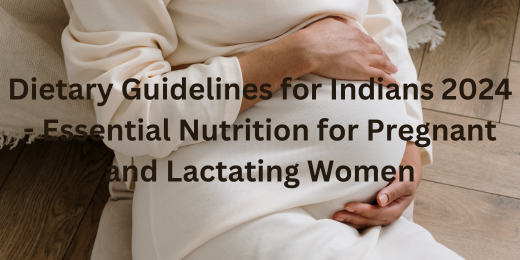
Dietary Guidelines for Indians 2024 – Essential Nutrition for Pregnant and Lactating Women
Meeting Nutritional Demands During Pregnancy
Pregnancy nutrition guidelines play a crucial role in meeting the physiological and nutritional demands of expectant mothers. During pregnancy, the body requires essential nutrients to support both foetal development and maternal health. It is imperative for pregnant women to maintain a nutrient-rich diet to ensure optimal health for themselves and their growing babies.
Adequate intake of nutrients such as iron, folic acid, calcium, and vitamin D is vital for supporting the development of the foetus and sustaining maternal health. Pregnant women should focus on consuming a variety of foods that provide these essential nutrients to meet their increased dietary requirements. Additionally, incorporating nutrient-rich foods like fruits, vegetables, whole grains, lean proteins, and dairy products into their diets is highly recommended.
Ensuring proper maternal health during lactation is equally important for both the mother and the newborn. During lactation, mothers need extra calories, proteins, and micronutrients for optimal milk production and personal health. Adhering to dietary guidelines and healthy eating habits is crucial for ensuring the well-being of both mother and baby. This blog post utilizes information sourced from an article published by the Indian Council of Medical Research (ICMR).
Focus on Key Nutrients
Pregnancy nutrition guidelines emphasise the importance of key nutrients for both maternal and foetal well-being. Among these, iron, folic acid, B12, iodine, and LCn-3PUFAs stand out. These nutrients play crucial roles in supporting the healthy development of the baby and maintaining the mother’s health throughout pregnancy.
Iron is essential for preventing anaemia and supporting the formation of red blood cells. Folic acid is vital for preventing neural tube defects in the baby, especially during the early stages of pregnancy. Vitamin B12 is crucial for the nervous system development in babies.
Iodine is crucial for proper thyroid function, which is essential for the baby’s brain development. LCn-3PUFAs aid in the development of the baby’s brain and eyes. Pregnant women should ensure they include sources rich in these nutrients in their diets to support a healthy pregnancy and the optimal growth of their babies. Visit your local Uyir Organic Farmers Market to buy high-quality organic food products. Alternatively, you can order them online at www.uyironline.in or www.uyirorganic.farm.
Impact of Nutritional Status on Pregnancy Outcome
Pregnancy nutrition guidelines underscore the critical impact of nutritional status on the outcome of pregnancy. Poor nutrition during pregnancy can pose risks such as preterm birth, low birth weight, and developmental issues for the child. A balanced diet and adequate weight gain are essential to support the mother’s health and ensure optimal development for the baby.
Maternal health during lactation is also profoundly influenced by nutritional factors. A lack of essential nutrients during this period can affect the quality and quantity of breast milk, impacting the baby’s growth and development. It is crucial for lactating mothers to maintain a nutritious diet to support both their own health and the well-being of their infants.
Undernourishment during pregnancy not only affects birth weight but can also lead to long-term consequences for the child’s development. Children born to undernourished mothers may face challenges such as stunted growth, compromised immune function, and cognitive delays. Ensuring proper nutrition throughout pregnancy and lactation is vital for the health of both mother and child.

Weight Gain Recommendations
Pregnancy nutrition guidelines include recommendations for weight gain tailored to the mother’s body mass index (BMI). Underweight women are advised to gain more weight during pregnancy, while overweight or obese women may need to limit weight gain. Monitoring weight gain is crucial for ensuring a healthy pregnancy and optimal outcomes for both mother and baby.
Maternal health during lactation is influenced by factors such as weight gain during pregnancy. Adequate weight gain is essential to support the nutritional needs of both the mother and the growing baby. It is important for women to follow recommended guidelines for weight gain to reduce the risk of complications during pregnancy and promote maternal well-being.
Adequate weight gain during pregnancy is crucial, especially for underweight women, to ensure healthy baby development. Conversely, overweight, or obese women should monitor weight gain to avoid complications like gestational diabetes. Adhering to weight gain recommendations promotes a smoother pregnancy and a healthier newborn.
Meeting Nutritional Needs During Lactation
Pregnancy nutrition guidelines emphasize the importance of meeting nutritional needs during lactation as well. Breastfeeding mothers require additional calories and protein to support milk production and maintain their own health. A nutrient-rich diet rich in fruits, vegetables, whole grains, and lean proteins is essential for optimal breast milk production.
Maternal health during lactation is closely linked to diet and nutrition. Breastfeeding mothers should consume a balanced diet that includes a variety of nutrient-dense foods to ensure they and their babies receive essential vitamins and minerals. In some cases, dietary supplements may be recommended to fill nutritional gaps during breastfeeding.
Adhering to pregnancy nutrition guidelines during lactation ensures adequate nutrient intake for both mother and baby’s health. Consulting healthcare professionals for a tailored nutrition plan supports breastfeeding success and maternal well-being, promoting optimal start for babies.
Dietary Care and Food Safety
Pregnancy nutrition guidelines stress the significance of a balanced diet and diverse food choices for expectant and breastfeeding mothers. Consuming a variety of nutrient-rich foods ensures that both mother and baby receive essential vitamins and minerals necessary for optimal health.
Maternal health during lactation is influenced by dietary choices, highlighting the importance of adhering to recommended dietary guidelines. Breastfeeding mothers should focus on consuming foods rich in nutrients, including fruits, vegetables, whole grains, lean proteins, and dairy products, to support lactation and overall well-being.
Practicing food safety measures is crucial to prevent food-borne illnesses during pregnancy and lactation. Expectant and breastfeeding mothers should handle, prepare, and store food properly to reduce the risk of contamination and ensure the safety of themselves and their babies.